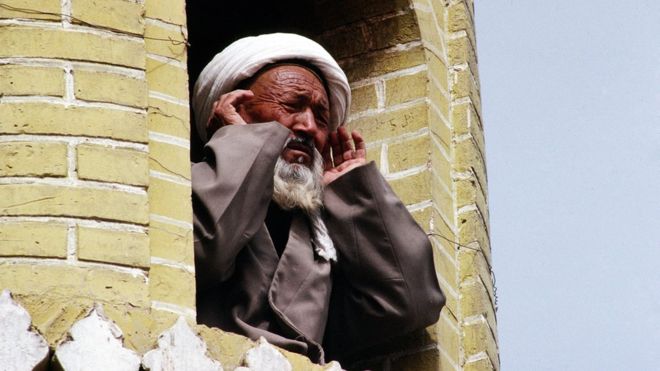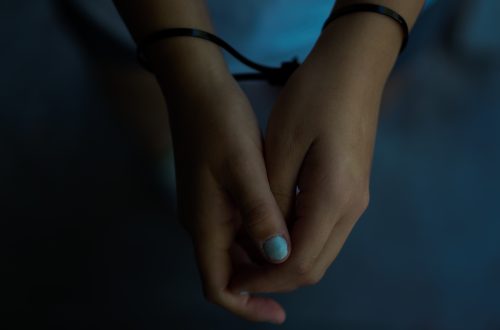Written by Rebecca Mitchell
A stop by the police. A questioning of documents. A constant watch on each movement throughout the day. A detaining at the airport. A removal from family members. Each of these have become a common occurrence over the past five years for ethnic and religious minorities in China as they are taken into political education camps, detention centers and prisons, according to the Human Rights Watch.
POLITICAL REEDUCATION CAMPS
The camps are a part of the Chinese government’s “Strike Hard Campaign against Violent Terrorism,” according to the Human Rights Watch. One of the groups within the camps are Uighurs, many of whom are Muslim, ethnically Turkish and a part of the Chinese population, as reported by the BBC. The United Nations became involved with the situation as records have indicated ranges of 10 thousand to one million individuals being placed in the camps, according to NPR.
“In August 2018, a UN human rights committee was told there were credible reports that China had ‘turned the Uighur autonomous region into something that resembles a massive internment camp,’” the BBC said.
The people in the camps are not all Uighurs, as seen through ethnic Kazakh Kayrat Samarkand who shared with NPR that the common denominator is growing up in a Muslim family or community. At the political education camps, people are placed into three separate groups: religious individuals, criminal suspects and those who travelled outside the country, according to NPR. Uyghur economist Ilham Tohti, who was also sent to a camp, noted the intentions of the place.
“What they want is to force us to assimilate, to identify with the country, such that, in the future, the idea of Uyghur will be in name only, but without its meaning,” Tohti told the Human Rights Watch.
RELIGIOUS RESTRICTIONS
Within the camps, the specific actions to reconstruct the individuals’ identities include learning Mandarin Chinese, declaring allegiance to President Xi Jinping and largely leaving their faith, according to BBC. As an expert on religious persecution, president of the IDEOS institute and previous Institute for Global Engagement employee, Christy Vines explains the goal of a government like China in this type of situation.
“The way [the Chinese government sees] their future of remaining in power is to ensure that those ideas and those religious beliefs and norms of the Uighurs are not spread beyond the boundaries that they allow it to,” Vines said. “And so China’s certainly number one priority when it comes to the Uighurs and other minority religious groups, which include Christianity for the longest time, is really the eradication of it. It’s not just the suppression of it, it’s the complete eradication of it.”
The restrictions are not new, as the Chinese government is largely known for other regulations, from the previous one-child policy to limits on internet usage. The constraints continue to religion, as seen with the Uyghur Muslims currently.
“The human rights violations in Xinjiang today are of a scope and scale not seen in China since the 1966-1976 Cultural Revolution. The establishment and expansion of political education camps and other abusive practices suggest that Beijing’s commitment to transforming Xinjiang in its own image is long-term,” the Human Rights Watch said.
The current actions come as part of governmental religious persecution, which Vines defines globally as individuals desiring to keep their power through the suppression of others. Vines also explained this type of persecution through specific actions that people often expect to see.
“Most people when they think about governmental persecution or oppression when it comes to religion or religious freedom often think of it in terms of the physical manifestations of oppression. So, the prevention of certain groups to gather in worship, the imprisonment or physical brutality that is operationalized on religious minorities or the religious groups that are not in power,” Vines said.
POWER STRUCTURES
Vines extended the comparison to power structures, including the Chinese government with the Uyghur Muslim population, who work to control by removing threats. According to Vines, one of these seen threats all over the world is religion, which constitutes many people’s primary identity rather than a secondary or tertiary one. The reasons also extend to ethnicity.
“For some religious conflict is the mirror, the other side of the coin, of ethnic conflict. It’s seeing somebody as the other. … And if you don’t believe like we do, act like we do, think like we do, look like we do, whatever it is, worship like we do, then we instantly see it as a threat to our identity and our own existence,” Vines said. “Well, if you actually take that then to a whole other level of governmental power, either it is one religion that has become the state or accepted religion and they see those who are not of them as a threat to their existence, but even more so their power because most governments get their power through the people.”
Some of the people existing under the power structure include minority groups who are being removed from their homes to the political education camps. Some of the groups include people from “‘sensitive’ countries” including Indonesia, Kazakhstan and Turkey, according to the BBC. Within these groups, wives are being taken from their families and in other cases, as noted by the Human Rights Watch, husbands, brothers or nephews.
“If we separate families, especially when we separate children, then we can basically train them, re-train them according to our own cultural norms basically instill upon them whatever the religious belief systems or the cultural norms that we now want them to adopt and accept,” Vines said. “It also removes the leadership dynamic, especially when they’re separating fathers from mothers and children because often… the father is the religious leader in the home.”
One of the separated families was Pakistani Javeid, his wife and their sons, who were originally living in Xinjiang. Before the separation, Javeid and his wife would be questioned by the police about their marriage and identification information for living in China, according to NPR. They also practiced Muslim traditions in secret ways, such as leaving the lights off for their early morning meals during Ramadan due to fear of their neighbors’ reactions. Vines connects these ways of living to governmental decisions as a part of a larger “us versus them” complex that changes societal ways of life.
“The one thing governments fear is for the citizens to rise up and remove them from power. And so the best way to prevent that is to imprison them, to oppress them, to scare them and that trickles down to every aspect of daily life, whether it’s how the police interact with religious groups, … it’s how neighbor works against neighbor because when you fear for your own safety the best way to ensure that you remain safe is by telling on the neighbor that is different or is a threat,” Vines said.
In fighting against governmental religious persecution, Vines sees religious freedom as an important concept to understand.
“The hardest thing to really help governments see is that the freedom of worship, when people feel respected and people feel like they have the right and the freedom to assert their own identity and their own religious belief, it is actually one of the greatest peacebuilders that there is,” Vines said.
HOPE FOR ETHNIC MINORITY
While groups desire for reconciliation in China, a 2009 Pew Research Center study also notes the history of high religious persecution leading to prison, torturing and beating of individuals. The specific history of the mistreatment of Uyghur Muslims is one clearly linked with their societal rank as an ethnic minority. As executive managing director in Los Angeles for Far East Broadcasting Company Korea, Mary Kay Park speaks to her understanding of the Uyghur population in China along with a hopeful outlook in relation to Christian radio.
“They’re an ethnic minority up there in those mountains and because of the topography, pretty isolated from other regions and hard to reach kind of area, but I think this is… the beauty of the media and online content and radio content, it can go through mountains. It can reach the unreached better than missionaries on foot can,” Park said.
Park also spoke briefly about China’s restrictions on the Uighurs as well as on religious persecution all over the world that FEBC faces as a Christian organization as a part of the government power dynamic that Vines discussed.
“For FEBC, the persecution is real around the world,” Park said. “Our tagline used to be, ‘Christ to the world by radio’ but because we are in some very sensitive areas, some areas where we can’t even say that we have a Christian station… they do like first response work, they do like a message of hope, that kind of messaging rather than Christ, message of Christ or Bible.”
As persecution of many religions and ethnic groups continue around the world and in China, the reality of Uyghur Muslims remains uncertain as future implications will continue to find their ways into the daily lives of individuals, families and businesses.




